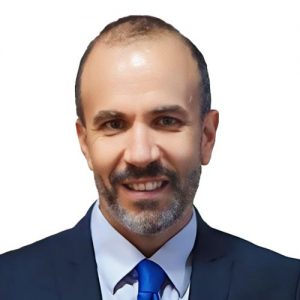
Fausto Pedro García Márquez Ph.D.
Fausto works at UCLM as a Full Professor (Accredited as Full Professor from 2013), Spain, an Honorary Senior Research Fellow at Birmingham University, UK, a Lecturer at the Postgraduate European Institute, a Research Fellow at INTI International University&Colleges, Malaysia, and has been Senior Manager in Accenture (2013-2014). He obtained his European PhD with maximum distinction.
He has been distinguished with the prices: Runner Prize (2023), Nominate Prize (2022), Gran Maestre (2022), Grand Prize (2021), Runner Prize (2020) and Advancement Prize (2018), Runner (2015), Advancement (2013) and Silver (2012) by the International Society of Management Science and Engineering Management (ICMSEM), First International Business Ideas Competition 2017 Award (2017), etc. He has published more than 280 journal papers (187 JCR: 88-Q1; 52-Q2; 38-Q3; 9-Q4), some recognized as: “Progress in Photovoltaics: Research and Applications” (Q1, IF. 8.49, one of the most downloaded in first 12 months of publications, 2023), “Applied Energy” (Q1, IF 9.746, as “Best Paper 2020”), “Renewable Energy” (Q1, IF 8.001, as “Best Paper 2014”); “ICMSEM” (as “excellent”), “Int. J. of Automation and Computing” and “IMechE Part F: J. of Rail and Rapid Transit” (most downloaded), etc. He is the author and editor of over 54 books (Elsevier, Springer, Pearson, Mc-GrawHill, Intech, IGI, Marcombo, AlfaOmega,…), >115 international chapters, and 6 patents. He is the Editor of 5 Int. Journals, Committee Member more than 70 Int. Conferences. He has been the Principal Investigator in 4 European Projects, 8 National Projects, and more than 150 projects for Universities, Companies, etc. His main interests are: Artificial Intelligence, Maintenance, Management, Renewable Energy, Transport, Advanced Analytics, and Data Science.
He is being:
- Expert in the European Union in AI4People (EISMD), and ESF.
- Director of www.ingeniumgroup.eu.
- Senior Member at IEEE, 2021.
- Honoured Honourary Member of the Research Council of Indian Institute of Finance, 2021.
- Committee Chair of The International Society for Management Science and Engineering Management (ISMSEM), 2020.
- Research Fellow at INTI International University&Colleges, Malaysia, from 2023.
- Visiting Professor at Sheyang University (China) from 2024-2027.
The emergence of new technologies, as well as new renewable energy sources, is causing a radical change in the new industry. On the other hand, new sensors, information and telecommunications systems are generating great inflation of data that is very difficult, and in many cases even impossible, to address with the analytical techniques used until now. This, together with the requirements to find a solution quickly following the demands of the new era of processing data online, called the Internet of Things, has led to the importance and rise of artificial intelligence.
On the other hand, humidity has begun to displace and locate the new industry in the seas. All of this requires new vehicles in which human presence is not required to be able to inspect, operate, transport… due to the harsh conditions of this habitat.
ENDURUNS is a European project that addresses the design and development of autonomous marine (surface) and underwater vehicles, interconnected with each other and with land, powered by renewable energy, and equipped with numerous sensors for inspection. In this presentation, this project will be presented, as well as the challenges that remain pending, giving rise to new ideas for students and researchers to address them.
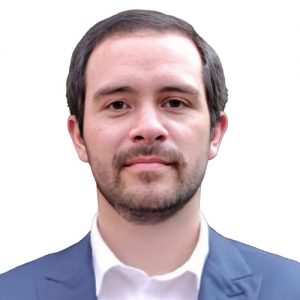
Cesar Diaz Londono Ph.D.
Cesar is currently serving as an Assistant Professor at Politecnico di Milano in the Department of Electronics, Information, and Bioengineering. He earned his B.Sc. and M.Sc. degrees in Electronics Engineering from Pontificia Universidad Javeriana in 2014 and 2016, respectively. Cesar holds a double doctoral degree, having completed his Ph.D. in Engineering at Javeriana and the Ph.D. in Electrical, Electronics, and Communications Engineering from Politecnico di Torino in 2020.
He graduated with Cum Laude honours for his master’s degree, and his doctoral thesis received the highest honours. Following his academic achievements, Cesar served as a postdoctoral researcher at Politecnico di Torino in 2021. Additionally, he undertook two visiting research positions, one at Delft University of Technology in early 2024 and another at Chalmers University of Technology later that year. His research expertise is centred around the integration of electric vehicles into the electrical grid. He actively engages in collaborative research projects with industry partners specialized in electric vehicle chargers. Additionally, he contributes to the development of real-time controllers for electrical grid studies. His diverse experiences have honed his skills in research, teaching, and managing both independent and team-based projects. He has also established valuable collaborative relationships with peers across various universities. Cesar is committed to advancing his career and making significant contributions to the fields of energy management and electric vehicle integration. The results of his research have been disseminated in over 35 scientific publications, including conference papers and journal articles.
Abstract: The increasing adoption of Electric Vehicles (EVs) challenges the integration of EV charging infrastructure with the electrical grid, as uncoordinated charging can affect grid stability. Smart charging strategies are essential for managing EV charging demand and ensuring smooth integration. This presentation explores various strategies for managing EV charging and integrating it into the electrical grid, highlighting two main Demand Response (DR) approaches: Model Predictive Control (MPC) as a direct control strategy and a bilevel mechanism as an indirect control. Direct control strategies schedule dispatched charging power and include bidirectional strategies for vehicle-to-grid (V2G) operation. The MPC technique computes optimal charging sequences at each time interval using a receding horizon strategy. This strategy’s effectiveness is demonstrated in scenarios such as meeting dynamic energy service requirements, reducing operational costs, or maximizing charging station flexibility. Direct load control strategies often consider the connection times of vehicles as uncertain parameters or random variables, but they do not fully exploit the charging process’s flexibility due to the need to ensure safe network operation. This presentation also introduces a model that combines an indirect control mechanism to regulate the dwell time of EVs with direct load control to define the charging profile and exploit the flexibility for providing energy services to the electrical grid
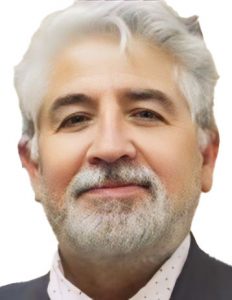
Hector Rene Vega Carrillo Ph.D.
Hector has a large experience in research and teaching in Nuclear Sciences. His research interests include experimental and computational spectrometry, dosimetry of neutrons and gamma-rays, and design of subcritical nuclear reactors using uranium and thorium as nuclear fuel. He has published more than 200 papers in scientific journals and more than 40 books. He participated in several scientific meetings presenting more than 450 papers.
From 2005 up to 2020 Dr. Vega-Carrillo was Chairperson of the International Scientific Committen Chairperson of the International Symposium on Solid State Dosimetry (ISSSD). In extenso papers published in the ISSSD electronic proccedings are uploaded at the International Nuclear Information System of the International Atomic Energy Agency (INIS-IAEA) (https://inis.iaea.org/search/search.aspx?orig_q=ISSSD&src=ics).
In addition a set of presented papers are published in the the Elsevier´s journal Applied Radiation and Isotopes. Dr. Vega-Carrillo has been invited professor in universities in Mexico, Ecuador, Spain, Colombia and Peru.
From 1981 to 2023 he was faculty member at the Universidad Autonoma de Zacatecas, and liason officer by Mexico at the Nuclear Energy Agency. He was co-founder of the Irradiation and Dosimetry Mexican Society(SMID, AC).
Professor Vega-Carrillo is member of the editorial board as managing editor of Applied Radiation and Isotopes and member of the editorial board of Radiation Physics and Engineering.
Energy, Environment, and Society
Energy is an essential agent for the development of society; however, its production and use have an environmental impact that negatively affects society. One of these impacts is the emission of greenhouse gases that lead to global warming. One solution is to design an energy transition plan using alternative energy sources. Wind energy and solar energy (photovoltaic and photothermal) have gained ground worldwide, but due to production restrictions, they do not represent a definitive solution. A feasible short-term solution is the use of nuclear energy using Uranium and Thorium as fuels. Whatever the plan of action and the course of action each country decides upon, it will always require a group of highly trained professionals. The youth of each nation are the human resources that, through the educational process, become the necessary human capital.
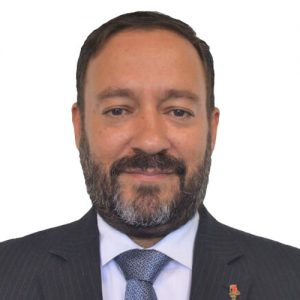
Roberto Carlos Hincapié Ph.D.
Roberto is an Electronic Engineer, holding a Master’s and a Doctorate in Engineering from the Pontifical Bolivarian University. At the same university, he has served as a professor, researcher, Faculty Director, and is currently the Dean of the School of Engineering. He is a researcher recognized as Senior by the Ministry of Science, Technology, and Innovation. He is a member of the board of directors of the Colombian Association of Engineering Faculties, of which he was president from 2020 to 2022. His work has focused on optimization problems related to the design of communication systems.
Drawing from his experience, he has applied his knowledge to data processing, currently concentrating on data science problems, with an emphasis on artificial intelligence and reinforcement learning for solving engineering problems. This work spans basic and applied research with a projection towards solving practical problems.
Abstract: The modern engineering landscape demands innovative solutions for complex challenges, with optimization at the forefront. This conference aims to highlight the critical importance of optimization in engineering, demonstrating how it enables the resolution of both simple and complex problems with significant impacts on daily life. We will embark on a journey through various problems, analyzing their complexity and presenting different solution alternatives through optimal and heuristic algorithms. We will conclude by showcasing practical cases that have been resolved through optimization in the context of university research and management.
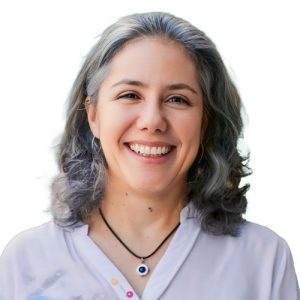
Natalia Gaviria Gómez Ph.D.
Natalia Gaviria Gómez is an Associate Professor in the Department of Electronic Engineering at the University of Antioquia. She earned her PhD in Electrical and Computer Engineering from the University of Arizona in 2006 and an MSc in Electrical Engineering from the University of Los Andes in 2000. Natalia has held significant roles such as Scientific Director at the University Research Center and Head of Research and Graduate Studies at the Faculty of Engineering at the University of Antioquia.
She has supervised theses for 5 doctoral students and 15 master’s students, making substantial contributions to their academic and technical advancement. Natalia has authored numerous publications in prestigious journals and conferences, covering topics from energy efficiency to cybersecurity in critical infrastructures. Her research areas include energy sustainability, information and communications technologies, technology in education, and cyber risk management. Additionally, Natalia is an active volunteer at IEEE, where she currently chairs the communications chapter in Colombia, highlighting her commitment to the promotion and development of engineering at both national and international levels.
Abstract: The advent of new technologies, such as the Internet of Things (IoT), has led to the widespread deployment of low-cost monitoring systems across various applications, including air quality monitoring, smart agriculture, and healthcare. These systems, compared to traditional monitoring methods, offer real-time information with higher spatio-temporal resolution. However, they also pose challenges regarding the quality of the data collected, which can impact model performance and the decisions made based on this data. As a result, ensuring data quality has become a top priority for researchers and data users alike. This presentation examines various aspects of data quality in the context of IoT systems. It begins by outlining different dimensions of data quality and their application to a data quality index, followed by an analysis of techniques for assessing data quality and proposals for its improvement.
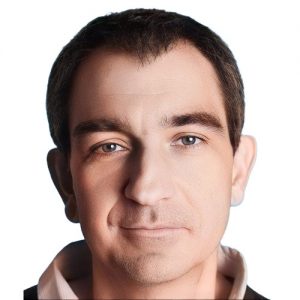
Gonzalo F. García Fernández Ph.D.
Gonzalo is professor and researcher in nuclear technology and radiation protection at Technical University of Madrid (UPM), since 2017, specialized in the application of radiation to medicine and in proton therapy centers. Previously, from 1994, he developed his professional career as project manager in international projects in fields as healthcare facilities, roads, energy efficiency, radiation protection and shielding, industrial facilities, research and education.
His education includes Ph.D Industrial Engineering (UPM) in Sustainable, Nuclear and Renewable Energy, Master in Nuclear Science and Technology (UPM), Mechanical and Industrial Engineer (UPM), and Business Management (PADE-IESE). He is a Spanish Chartered Professional Engineer (PE) with professional accreditations in radiation protection by Nuclear Council of Spain (CSN), project management (PMP by PMI), and energy sustainability (CEM by AEE). He has more than sixty publications in journals, proceedings and books, a hundred of presentations at international conferences and congresses, and he has mentored more than thirty Final Master Thesis and Final Degree Works.
Proton Therapy: A notable example of application of nuclear engineering to advanced healthcare industry
Abstract:
Healthcare industry combines engineering, physics, biology, business management, architecture and, of course, medicine, among other disciplines, in order to improve efficiency and safety, comfort for patients and healthcare staff. In recent decades, great advances have been made globally, always with the focus on the introduction of state-of-the-art technologies in the design, construction and equipment of hospitals. Nowadays, a notable example of advanced healthcare industry and application of nuclear technology to medicine is proton therapy, a kind of radiotherapy with the highest degree of precision and accuracy, which involves the eradication of cancerous cells, while tried to preserve as much as possible, surrounding healthy tissues and critical organs.
Proton therapy has a growing potential in the treatment of some types of tumours and, consequently, in the last decade, proton centers are increasing rapidly around the world, with great prominence in Spain, where there are already two private centers in operation, and eleven new public projects under planning and construction. The talk is intended to be a travel around the different technologies and developments in science, integrated in the industry of proton therapy, one of the most advanced medical disciplines. Topics such as radiation for cancer, particle accelerators, beamlines and protons delivery systems, treatment planning system, quality assurance in medical technologies, or emerging and treatments of the future, will be discusses in the presentation.

